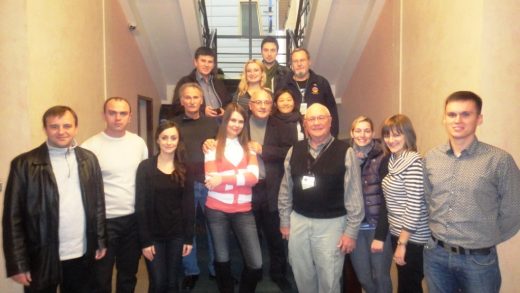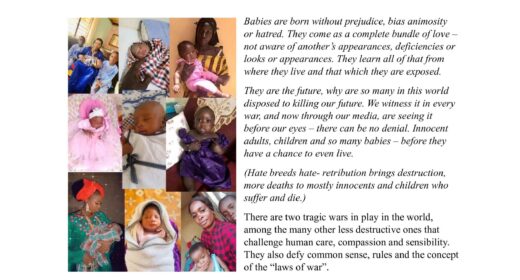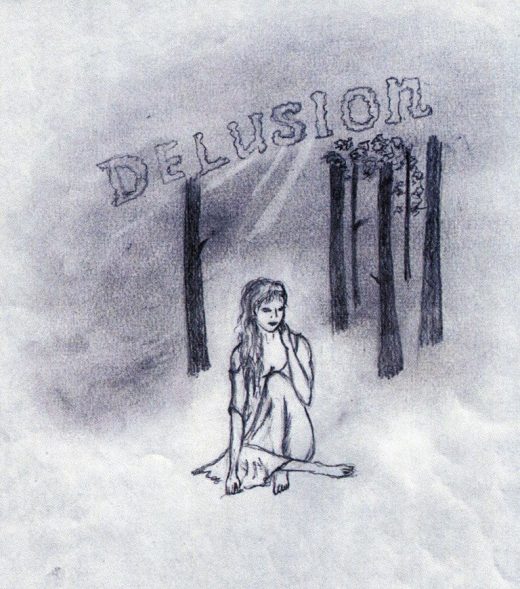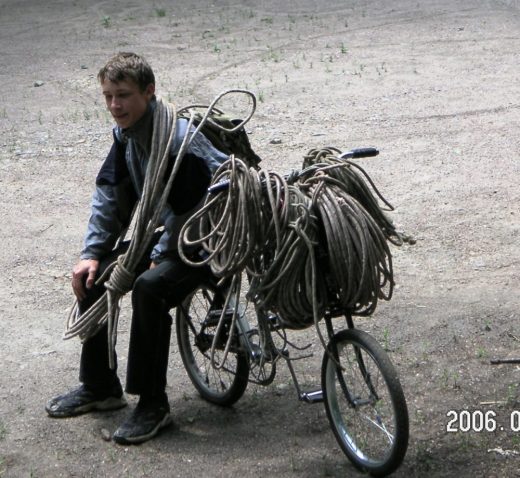
(During the Ukrainian Parliamentary Elections in 2012 I served as Long Term Observer for two months. I was also given the privilege of acting as group leader for the immediate election. These are members of my four teams and their translator and drivers.)
I have just completed an assignment as an international observer in the second round of the Ukrainian Presidential elections. Imagine two national elections in the matter of three weeks, because the first was inconclusive. The second round was very close with approximately three and one half percent of the votes separating the two finalists. Over one million voters chose a third option on the ballot to accept neither. One can only contemplate in Canada how many more people would vote if they had such an option.
Ukraine, like most former SovietRepublics, has been on a quest for democracy and prosperity since this system collapsed. Most importantly they have been in search for a leader – and the hope of a better tomorrow.
They have been told and many have born witness to the affluence of others, especially European and Western democracies. They dream of prosperity, not just for the rich and influential, but for all. A functioning democracy, much less prosperity, has thus far been elusive.
They have though, created the mechanisms of a voting system that is basically transparent and accountable. They have many dedicated and trained people who know the laws and mostly abide by them in voting, counting and reporting. Albeit, the people engaged in this process are all committed to one or other political parties, they mainly oversee themselves by equal political representation in the polling committees.
But, like most democracies the political process itself is controlled by dominant parties, who often find ways to skirt the legitimate process.
International observers ruled that the process of voting was mostly fair and just in terms of international voting standards. This implies, of course, that the whole process was legitimate, something beyond the scope of most observers to ascertain, having spent such a short period of engagement in this particular political process.
The challenge for Ukrainians, and even those in developed democracies to understand, is that democracy is not just about voting. It is about representation and participation. Electing a government that respects the will of the electorate is imperative in a true democracy, even after the election is complete. This appears to be something most democracies need to redress, as many believe that the only say they have is a vote.
We only have to witness what is happening in the United States (US) where a leader was elected who epitomized hope, not only in the US but throughout the world. But, now a year later, many are upset, even unruly as they perceive that the agenda has been changed from what was promised. People in the US participate, even when it may be misdirected. The lesson for all is that change comes slowly.
Despite the perception of an idealistic leader of the finest quality, there are the entrenched interests that must be faced when one is elected. In the US there are the long term bureaucrats, those in political office for many years (in both parties), the lobbyists, and the interest groups, among others who resist any change. Providing genuine leadership in such a quagmire would be a challenge for anyone.
In 2005 the Ukrainians elected a President that provided for them this sense of hope and longing. Finally there was someone who would lead them out of the wilderness of despair into a bright new tomorrow. What they didn’t appreciate, was the time it would take. The reality is that no one person can effect such change, not against such entrenched interests that abound in any moribund system of government. This is a lesson that the US is learning as well.
It is also a lesson for Canadians. Currently we struggle with a government into control and stealth who appear to want to shift and change the very foundations of our democracy. Yet, they have no mandate to do so; not even a majority. Autocratic control is not leadership, even in a democracy.
The real challenge is to understand true leadership. Leadership is not about ideology, power or domination. It is about communicating, nurturing and empowering those that can and will do. It is as much about respect, trust and integrity, values in short supply in most political processes today. It’s about sharing; even with other political rivals, and most importantly, with people; all integral to any genuine democratic political process.
What must be understood is that change won’t ever be instantaneous. The values of democracy have been undermined over many years. Societies have been developed with an expectation of immediacy: unprecedented in history.
Those that would lead appear to be much into themselves, their egos and ideologies. Their main aim appears to be “their legacy”, whatever that may be: not the betterment of society.
Ukraine may yet provide a model for us all, as they struggle for their own freedom, democracy and prosperity. They have created a credible election mechanism. Their next challenge is to create a fair and open political process, which respects the will of people; not only those with wealth or power.
Ukrainians managed the 2005 election process with a show of people power. This model will serve them well if the newly elected government fails to take into account peoples real desires and aspirations, as well as, their realities.
The world needs leaders willing to rally the people and encourage their participation in taking on the entrenched interests that dominate most societies today, even democracies. Then the world can say there is true democracy where people are no longer represented, but participate, and not just by voting, in managing the overall political process. It is only with genuine leadership, which respects people, will people reclaim some control of governments.
The question for Ukrainians is whether they will regress into authoritarianism or move towards genuine democracy. For developed democracies, if we don’t awaken to its diminishment along with our rights and freedoms, the alternate is too dire to contemplate, most having never experienced real repression.
Written by Bill Pardy,
February 15th, 2010



It was indeed a truly unforgettable experience.